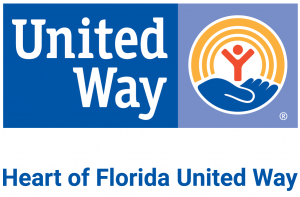Early-childhood education is in crisis | Commentary
By ALI DEMARIA
GUEST COLUMNIST| ORLANDO SENTINEL | MAR 14, 2022
The early childhood education industry is in crisis and has been for many years. The is cost is typically too high for the clientele, yet the revenues are not high enough to cover basic operational expenses. This business model failure, heightened by economic strain of the pandemic, leaves many preschools and early childhood organizations without viable operational alternatives.
The child-care system, like health care, affects most of us at some time in our lives. Some families depend on it to keep their livelihood while others only need it periodically; however, the issues remain the same. While not everyone may be reliant on the institution, everyone should feel as though services are available to them. Most people view both early childhood education and health care as “you get what you pay for” industries, associating high quality with high price. How can we improve access to early childhood education without sacrificing quality and affordability?
Early childhood education is a two-generational workforce issue and a cornerstone of a functional economy. Research indicates that children develop strong social and cognitive skills with exposure to quality early child care, and parents or caretakers depend on child-care programs to provide them the time to work and engage in our local economy. Organizations like the Winter Park Day Nursery do not just support children through child-care services. They also aim to stabilize the family unit to keep our community thriving by providing food and clothing pantries, as well as emergency relief funding for families in crisis. To continue to provide for these families, we need to change the way early childhood education is supported and funded by the community.
Though tuition may seem high for families, it is often the only source of revenue child-care programs receive. While there may be some state funding for programs such as VPK, School Readiness and Food Program, it is supplemental to families’ tuition costs.
Staffing shortages and demand for well-deserved higher wages have driven operational costs higher. 60-70 percent of child-care expenses go toward staffing, despite historically low wages in the industry (on average between $11 and $17 per hour).
Most organizations are reliant upon the generosity of individuals or local business leaders to keep our doors open. Changes should be made to integrate early childhood education into the broader community educational ecosystem.
To continue to equip our children for future success, early-childhood education professionals and programs need to be respected in the community at the same level of their K-12 peers. Care at this early age is just as important, given the formative development that occurs in early stages.
State support should extend to children from birth to age 5, rather than starting in kindergarten, through increases in per student funding for School Readiness and VPK children. Until local legislators and community leaders view early childhood education in the same light as primary school, we will see more early childhood education programs closing their doors, leaving many families unable to work and children without qualified school readiness programs and care.





